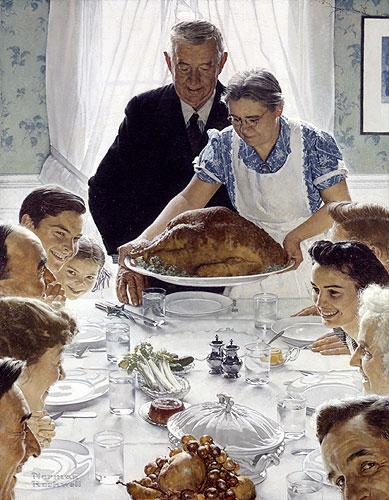
Gratitude — Now, More than Ever

Too many families will not be having a Happy Thanksgiving this week. Too many mothers will be planning funerals instead of roasting turkeys; too many siblings will be at candlelight vigils instead of fighting over the drumstick; too many fathers will weep bitter tears instead of carving the turkey. I think of the families in Colorado Springs after the massacre at Club Q, or the families of the football players at the University of Virginia, or the families of the workers at Walmart in Chesapeake VA gunned down just last night. I think of the mother of Akira Wilson who was shot to death in a hotel in NoMa, a young woman so full of promise — a dual enrollment student at Trinity, taking classes here while finishing her senior year at Jackson Reed High School.
And those tragedies were just in the last few days. So far in 2022, the United States has had 600 mass shootings — and we have a month to go in this sad year.
 Thanksgiving is a somewhat odd, distinctively American holiday, fraught with cultural stereotypes, laden with heavy food with an overlay of football games, while merchants and consumers line up after the repast to leap into the frenzy of holiday shopping. The central image of Thanksgiving is the family gathered around a table groaning under the weight of turkey and all the trimmings, a Norman Rockwell confection to be sure. (See poster on left.)
Thanksgiving is a somewhat odd, distinctively American holiday, fraught with cultural stereotypes, laden with heavy food with an overlay of football games, while merchants and consumers line up after the repast to leap into the frenzy of holiday shopping. The central image of Thanksgiving is the family gathered around a table groaning under the weight of turkey and all the trimmings, a Norman Rockwell confection to be sure. (See poster on left.)
Thousands of families afflicted by the lasting pain of gun violence and other tragedies will not have such an idyllic holiday.
And yet, in the midst of too much terrible grief, we must lift up the idea of Gratitude.
Gratitude demands that we look outside of ourselves, that we realize how much we need others, that others are there for us through good times and through sorrows. A disposition of Gratitude is essential for emotional good health and a balanced outlook on life. Gratitude is also essential for sustaining a good and peaceful society because it is infused with the religious ideal of justice as what we owe to each other for God’s life within us — a very different definition of justice from the too-prevalent American sense of vengeance and vindication. Gratitude asks for nothing in return, does not settle scores, forgives those who hurt us, tries mightily to see the good in even those we dislike intensely.
Of course it’s not fair to expect those so recently afflicted with powerful grief due to violence to feel any emotion but anger, sorrow and overwhelming pain. But it falls to those of us who are not so afflicted to reach out and help them, to walk with them in solidarity even as we strive to lift them beyond their pain to a place where they might begin to live again. And Gratitude should compel us to use our gifts and talents to address the issues that cause so much pain our society — justice demands that we be advocates and activists for solutions to the violence that claims too many lives and debilitates so many families.
Gratitude is not simply saying, “thank you” although that is important — a more complete embrace of Gratitude is what we do with and for others, especially those who have a hard time with the entire concept. Gratitude also demands that we have the courage to confront those who stoke the fires of hatred that fuel so much of the violence — when the demagogue preaches racial hatred or hatred against LGBTQ persons, or immigrants or Muslims or others, a disposition rooted in Gratitude will call out the hatred, confront the bully, show those who are vulnerable how to walk away from the sideshow.
If we are grateful for all that is good in our lives, then we must do everything possible to lift up what is good and to defeat what is destructive. Gratitude is active, not passive. As Cicero said, Gratitude is the parent of all other virtues — let us practice the kind of active Gratitude that will enlarge the virtues of justice and peace in our troubled society.
May Thanksgiving 2022 be a time of true Gratitude for our Trinity community and our families.